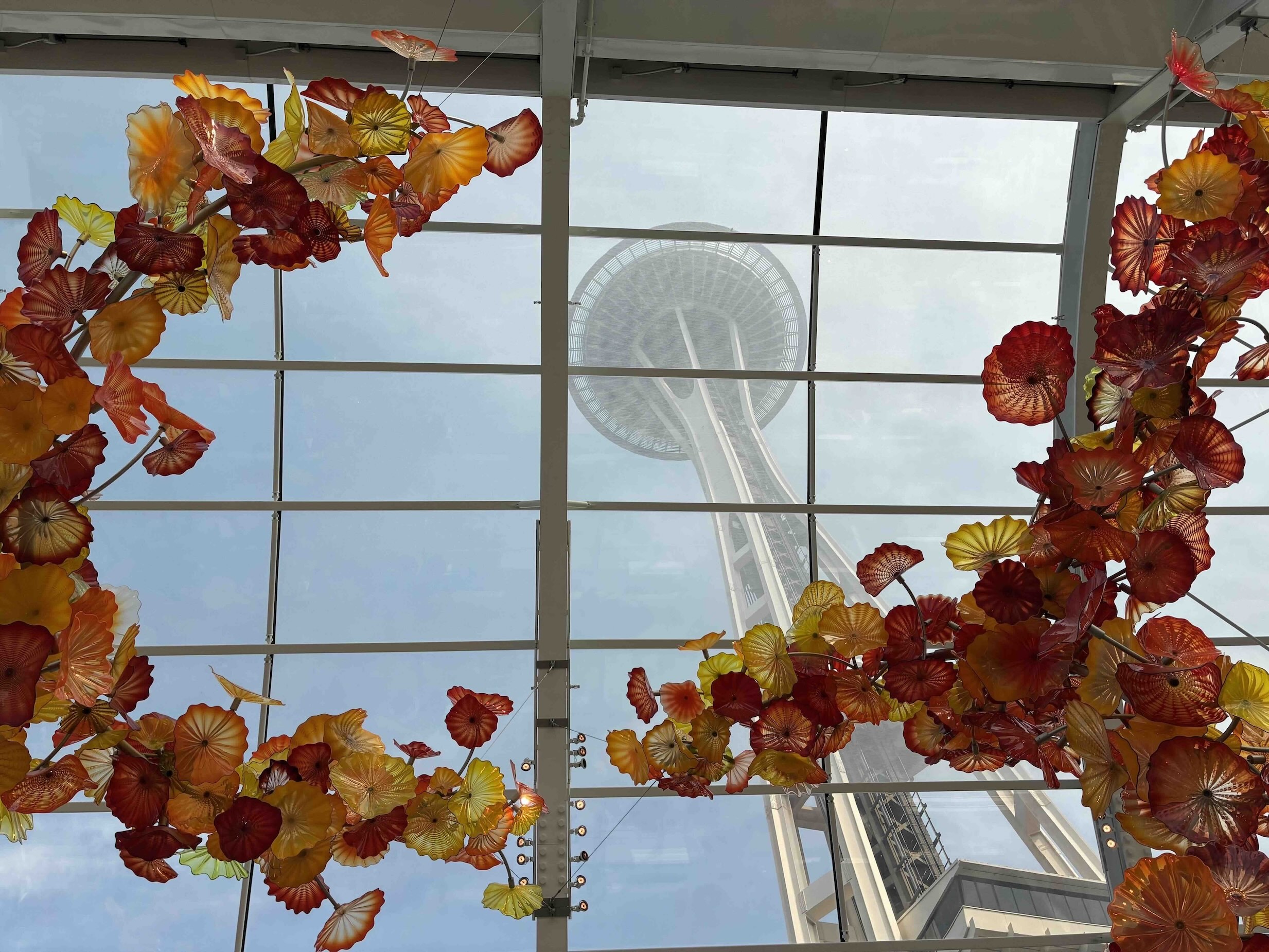4S Seattle Roundup

The Seattle Space Needle viewed from the Chihuly Garden and Glass Museum.
In September, Abby and Nicola joined the biennial Society for Social Studies of Science (4S) conference in Seattle and online to lead the DARE team’s panel on ‘Data, Care, and Learning in Datafied Worlds’. Across eight presentations, including our own, researchers from the UK, US, Canada, Australia, and Japan considered the ways in which data, care and learning shape each other.
The ‘data-care-learning' nexus underpins the theoretical and empirical work of the DARE project. Our project starts with the question: ‘How are data and healthcare transforming each other?’ To answer this, we turn towards data, care, and learning to inform our research and address new questions. Over the first year of the project, we immersed ourselves in the literature around the three concepts forming the nexus and came together regularly to orient ourselves as a team and conceptualise the nexus itself.
The aim of this panel was to present and discuss our ideas about thinking with and through data-care-learning as a nexus and to bring our work into conversation with research beyond the domain of data-driven healthcare. Through this panel, we engaged with research across diverse data technologies, contexts of use, communities of practice, and intellectual fields to broaden our understanding of the data-care-learning nexus and open- up new possibilities for employing it as a conceptual and methodological tool.
We were thrilled to bring together a diverse group of contributors who approached data, care, and learning in unique ways. Nicole Taylor, for example, reflexively explored her own practices of care and learning in navigating the vast datasets she produced from a project employing long-term participant observation in social medial contexts. Margaux Fisher addressed the challenges of community learning in the context of environmental justice and health equity, focusing on both the lacuna of specific data related to harmful environmental exposures and the inaccessibility of existing data for affected communities. Gianfranco Polizzi also explored themes of community engagement with data and data-informed decision making, with a specific focus on data literacy and data stewardship projects in marginalised communities in northwestern England. Sarah Yems introduced us to the use of predictive analytics in advertising as well as the novel forms of learning and knowledge that are both implicated in and shaping this landscape. And Luara Karlson-Carp shared her work on digitally mediated meditation and the emerging ambivalences in understandings of self-care. We also welcomed to this panel Kentaro Watanabe, who explored ideas of public trust in quantitative research methodologies, and Mira Guth, who presented her research on dairy farmers and veterinarians through the frames of public health governance, multi-species care and expertise.
All presenters drew on different conceptualisations of learning, different formulations of care and different instances of data. It was an edifying experience to see how this nexus comes together in many ways. Concepts of governance, temporality, ambivalence, and reflexivity underlined many of the presentations and have left us with a lot to think about as we move forward with our empirical and theoretical research this next year. We’re looking forward now to spending time refining and tracing the edges and articulations of this nexus with our empirical work, and pursuing questions such as: how do processes of learning and caring configure data practices? How does data influence perceptions of what we should learn and care about? How are data cared for and how does data enable or constrain the forms of care and learning that are possible?